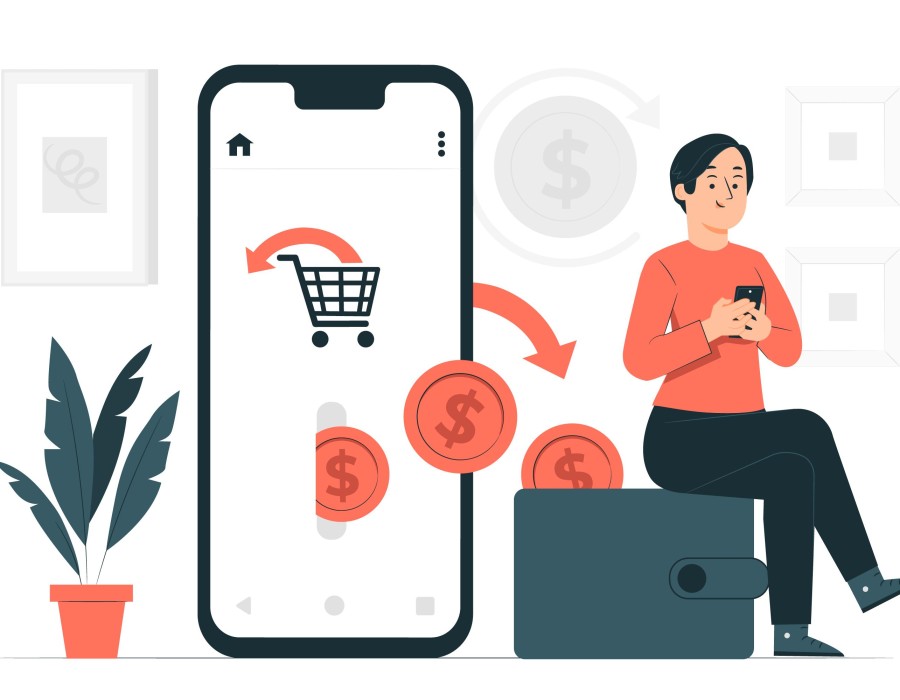Social commerce has been on the rise in recent years, integrating social media and online shopping to create highly-engaging experiences. As per reports, the global social commerce industry is projected to grow at a CAGR of 31% from 2021 to 2028.
Leading cashback and shopping platform Rakuten has been at the forefront of this trend, seamlessly blending social commerce features into its rewards model. This innovative approach delivers tremendous value for both users and retailers.
In this post, we’ll discuss key strategies to integrate social commerce aspects into a Rakuten-style cashback and loyalty platform.
Enabling Social Sharing
Social sharing is at the heart of social commerce. Allowing users to easily share deals, promos and their shopping wins on social media:
- Integrate share buttons for platforms like Facebook, Twitter, Pinterest, WhatsApp etc directly on product pages, deal pages or order confirmation pages. This prompts users to spread the word.
- Gamification through social sharing badges, points or rewards incentivizes users to share more. For example, Rakuten awards $1 for each new referral.
- Create leaderboards to display top social sharers. People enjoy a bit of healthy competition.
- Share buttons should be prominent and visible. Don't hide them away in small text links.
- Hashtag campaigns like #RakutenHaul get users posting their hauls on Instagram. Run contests for best posts.
- Let users easily share their order confirmation page or cashback amount received. This acts like a receipt and social proof.
- Add a referral program to reward users for sharing sign up links. This helps acquire more users organically.
- Leverage influencer marketing by having influencers post about your deals or cashback earnings on social media.
Building a Community
A lively online community engages users, provides social proof and retains them longer. Ways to build one:
- Create discussion forums and groups focused on shared interests, categories or deals. Allow users to interact, exchange tips, post deals and reviews.
- Q&A platforms like Quora help users assist each other. Rakuten has its own Rakuten Community where anyone can ask questions.
- User profiles and activity feeds make the experience more social. Users can comment, like, follow each other.
- Make community participation rewarding. Assign members badges, ranks, perks for being helpful.
- Group activities like deal hunting teams, cashback challenges with leaderboards band users together.
- Local outings, meetups and events help users connect offline too. Rakuten organizes Rakuten Nights where members meet up.
- Private or premium groups for VIP members foster exclusivity. Add perks like free shipping, boosted cashback etc.
Enhancing Peer Recommendations
Shoppers today heavily rely on peer recommendations over brand messages. Ways to highlight them:
- Let users create public wishlists and registries others can view, like and comment on.
- Show recent activity, popular items, friend recommendations on homefeeds.
- Social discovery feeds display products liked, bought by people you follow or influencers.
- A #YouMayAlsoLike section pulls recommendations from similar users.
- Let users save items they love in collections to share with followers.
- Crowdsourced Q&A like Quora enable users to recommend products.
-Influencer recommendations via posts or storefronts lend credibility.
- Add visit history so users can refind their browsing or buying activity to share later.
Providing Social Proof
Social proof like ratings, reviews and user photos builds trust and peer validation. Tactics to add:
- Show review ratings, total reviews and key highlights on product pages.
- Display social engagement stats - likes, shares, comments on products.
- Add visitor counters - “50 people viewed this product today”. Creates a herd mentality.
- User-generated content like shoppable Instagram feeds and review photos bring authenticity.
- Video testimonials from real customers carry more weight than text reviews.
- Show connected users who have liked, bought or browsed a product. Social validation.
- Share recent user activity like “Jane just bought this” or “Mark added this to his cart”.
- Add social listening analytics to find and highlight trending products generating buzz online.
Platforms Enabling Social Commerce
Here are some examples of platforms with features supporting social commerce:
- Facebook and Instagram Shop: Allow businesses to easily sell on Facebook & Instagram profiles and ads.
- Pinterest: More than 250 million people use Pinterest to discover and buy products. Brands can turn Pins into shoppable Product Pins.
- YouTube: Video commerce is rising. Brands can add shopping features to YouTube videos to power sales.
- Snapchat: Shoppable AR lenses and Snapchat storefronts are making social shopping engaging.
- Twitter: From Shop Modules to livestream shopping, Twitter is ramping up commerce capabilities.
- TikTok: Has launched TikTok Shopping to allow brands to add shoppable product links to short videos.
- WeChat: A super app allowing all kinds of social commerce from group buying to stores and mini-programs.
- WhatsApp: WhatsApp shopping and carts are making peer-to-peer social commerce easier.
Conclusion
Social commerce creates a highly engaging, interactive shopping experience. Users look to communities over brands while making purchasing decisions.
As we covered, platforms like Rakuten integrate social elements seamlessly within their rewards models. The key is to make social sharing and peer recommendations natural and rewarding. Visit our platform to know more: https://zipprr.com/category/rakuten-clone/
Blending social with transactional can power loyalty and advocacy. Users are invested not just in deals and cashback but also the connections formed with other members.
For brands and retailers, social commerce provides invaluable data, feedback and validation to improve offerings. UGC and influencer content build authenticity and trust.
As online shopping explodes, consumers demand richer experiences. The future lies in platforms providing end-to-end engagement - from discovery to advocacy. Social connectedness married with financial rewards is a potent combination - the sweet spot Rakuten delivers on beautifully.





Comments